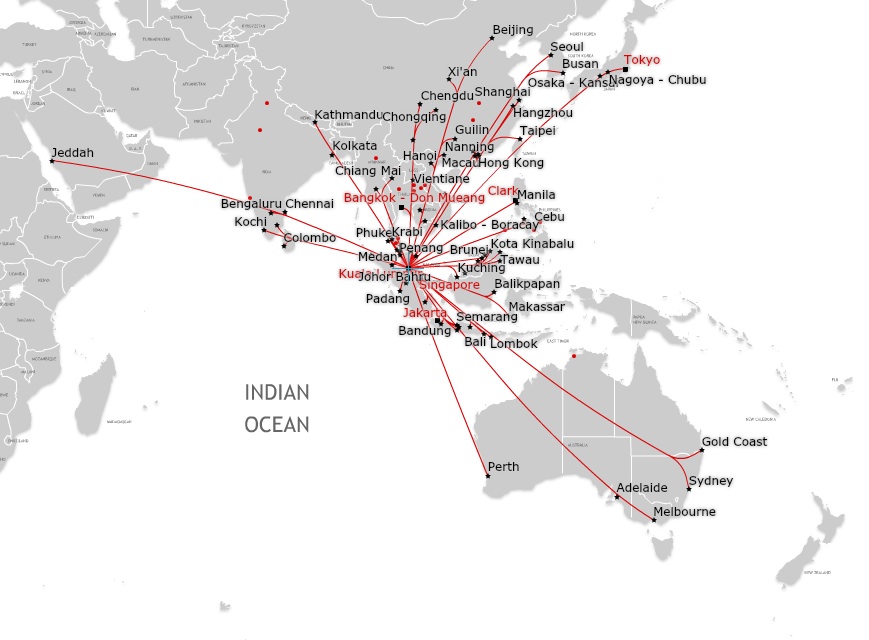Guest blogger and Visiting Fellow in the Department of Media and Communication at LSE, Dr Grace Yuehan Wang writes about ASEAN’s AI Governance guide as it diverges from EU rules, emphasising innovation and cultural sensitivity and discusses the challenges in balancing regional nuances with global AI governance standards.
_______________________________________________
ASEAN’s Approach to AI Governance– Defying EU AI Act
In June 2023, the European Parliament adopted a negotiating position on the AI Act which aims to facilitate AI investment and innovation and ensure that AI systems fulfil EU legal requirements and uphold citizen rights. On 18 July 2023, António Guterres, United Nations Secretary-General urged the UN Security Council to adopt a universal approach to artificial intelligence (AI) governance.
In early 2023, EU representatives toured Southeast Asian countries in an attempt to persuade ASEAN countries to adopt EU AI regulations. However, officials in several ASEAN states argued that the EU has been too quick in pushing for a global AI governance without fully understanding AI’s risks and benefits. In the February of 2024, the Association of Southeast Asian Nations (ASEAN) officially released the region’s own guide on AI Governance and Ethics.
Similar to the United States’ Artificial Intelligence Risk Management Framework, ASEAN’s AI guide is a voluntary instrument which aims to provide guidance for domestic regulations in the region. The guide promotes innovation as it leaves specifics to companies and local regulators under the regional AI risk assessment and governance framework, as ASEAN has no legal right to pass laws. Most importantly, it advises business and tech players to take countries’ cultural differences into account as ASEAN is a region that enjoys cultural and linguistic diversity across countries and communities. According to an official tweet on April 2, 2024, ASEAN recently endorsed its business-friendly AI guide and is nominated for the United Nations (UN) World Summit on the Information Society (WSIS) Prizes 2024. ASEAN’s attitude towards global AI governance reinforces an argument I articulated in another article: an effective global AI governance framework needs to focus on raising global awareness of the challenges presented by advances in AI systems and offer guidance in tackling local problems deriving from socio-economic and cultural differences as well as distinctive developmental challenges.
In this article, I analyze the rationale behind ASEAN’s AI ethics and governance guide which reflects its regional economic development and innovation realities as well as cultural complexities. ASEAN is a region of nearly 700 million people, with divergent national rules governing censorship, intellectual property, misinformation, social media and use of the internet. AI has the potential to transform economic development, social advancement as well as international politics. Different from the global financial governance systems such as the IMF and World Bank, global AI governance is a new and emerging area where international political entities can shape norms. It seems that ASEAN is not picking sides amidst global powers’ geopolitical competition regarding its AI development and business potential. Instead, its approach indicates a combination of Chinese innovation and American business spirit, while its emphasis on the consideration of regional cultural diversity highlights its similarity to cultural and societal diversity among the European Union’s member states.
Economic Implications of AI Development in ASEAN
ASEAN’s hands-off, business-friendly AI governance approach gives tech companies more freedom to experiment with innovations to further upgrade and advance AI development and innovation, which could benefit long-term technological innovation in Southeast Asia.
In my article Linking Together Asia’s Digital Future, I wrote that developing and fostering a big regional market of greater openness in Asia will largely rely on cross-border connectivity in terms of trade and digitalization. The digitalization of economic activity includes “the incorporation of data and the internet into production processes and products, new forms of household and government consumption, fixed-capital formation, cross-border flows, and finance.” ASEAN holds enormous growth potential in the digital economy and the possibility of integrating its manufacturing and creative economy sectors with digitalization. A report by Google, Temasek and Bain & Company shows that Southeast Asia’s digital economies are expected to reach $218 billion in total value of transactions in 2023, an increase of 11% from 2022, amid the global downturn.
The five main sectors of Southeast Asia’s digital economy are e-commerce, travel, food and transport, online media and digital financial services. Digital development in those service sectors as well as the accumulation of data from those sectors provide a basic AI development opportunity in the region. Various applications of AI in the fast-growing Southeast Asian context are attractive. Southeast Asia, following China’s innovations, has turned itself into an experimental playground with an increasing market demand in the global digital landscape. ASEAN has already gained traction in the global tech world in recent years including some notable examples such as Singapore’s Carro, Singapore’s Shopee, Vietnam’s MoMo, and Indonesia’s GoTo Group. E-commerce, food and transport, tourism and financial technology sectors will be the main contributors to ASEAN’s digital economy in the next few years. Newly developed AI applications will meet local needs and solve problems in ASEAN communities. For instance, a new generative model called PhoGPT is making waves in Vietnam while ChatGPT, developed by US-based Open AI has been gaining global traction. Named after the traditional Vietnamese noodle soup pho, PhoGPT is trained specifically for the Vietnamese language, rather than English. It is said that PhoGPT was developed by VinAI, the AI research arm of Vietnam’s largest private conglomerate VinGroup, formerly known as Technocom.
Vietnam’s PhoGPT, on the surface level, reveals that English-dominant AI models cannot be applied to all social and cultural contexts, while on a deeper level, it demonstrates the efforts in overcoming fears of widening existing divides and inequalities among the less powerful technology regions and countries. As Dr Kai-Fu Lee argued in his book, AI Superpowers: China, Silicon Valley, and the New World Order, “The AI world order will combine winner-take-all economics with an unprecedented concentration of wealth in the hands of a few companies in China and the United States.” Therefore, ASEAN’s decision to shy away from the EU’s strict AI guidance highlights its regional ambition to advance its economy through technological innovation: If the regional AI governance framework were too strict, it would be less beneficial to testing ideas and business experiments; if it were too loose, it would hurt regional security and interests. As innovation scholar Keith Pavitt wrote, the processes of competition in capitalist markets involve intentional experimentation through competition among alternative products, systems, processes, and services as well as technical and organizational processes that deliver them.
Conclusion: AI Governance Difficulties Within ASEAN
It seems that ASEAN’s AI Ethics and Governance Guide takes its regional development interests to heart, picking no side among global powers, although it is reported that the draft guide was circulated to leading American technology companies for feedback in 2023, including Meta, IBM, and Google. However, public information suggests that no tech company in China, ASEAN’s largest trading partner, has received this draft, despite Chinese tech giants’ expansion of their operations in Singapore and other ASEAN countries in recent years. ASEAN’s action could stem from concerns about global AI governance in data security and privacy as the global community has raised concerns about China’s data breach incidents and surveillance. For instance, SenseNets, a Chinese company which provides AI-based security protection, was reported to leak confidential personal information in 2019 before the Chinese government explored AI regulatory governance. AI is a double-edged sword for data security and privacy. The lack of privacy protection laws in many ASEAN countries makes it difficult for ASEAN to reach a common understanding of data regulations, as the right to privacy is sometimes viewed as a barrier to economic success which was the case in Singapore before The Personal Data Protection Act (the “Singapore PDPA”) was enacted in 2012.
Singapore, as the most technologically advanced country in Southeast Asia, has been investing in AI research and development, utilizing its well-known educational institutions and global investment. Singapore is listed as one of the top global AI markets by the US Department of Commerce, the only country in Southeast Asia. If we treat ASEAN as an innovation ecosystem, each country can be seen as an innovation hub within that ecosystem. ASEAN’s current innovation reality shows that only one hub, Singapore, has the capacity to compete internationally from a research and development perspective. Besides the AI governance influence and pressures from global powers, ASEAN also faces AI governance challenges within its bloc due to socio-economic inequalities in the region. At the World Economic Forum in Davos in January 2024, Martin Romualdez, Speaker of the House of Representatives and cousin of President Ferdinand ‘Bongbong’ Marcos, Jr., said that the Philippines would present a legal AI governance framework to ASEAN when it becomes the chair of the bloc in 2026. However, the Philippines proposal is said to contrast sharply with the business and innovation-friendly steps ASEAN has taken so far in terms of AI governance. The Philippines proposal is intended to protect the country’s economic interests since it is the world’s second-largest provider of outsourcing services (eg, customer helplines), an industry accounting for 7.5% of the Philippines economy, and it is estimated that roughly 1.6 million workers are in danger of being replaced by generative AI.
Singapore’s international R&D capacity contrasts with the Philippines’ economic reality. How can ASEAN’s AI Ethics and Governance framework guide its regional cultural and social nuances and diversity while balancing its regional AI innovation? There is no easy answer. The difficulties of ASEAN’s regional AI governance, once again, prove that global AI governance is hard. Maybe ASEAN does have to pick a side in terms of AI governance to reach a regional consensus?
______________________________________________
*This article originally posted on ‘International Development LSE Blog‘, on 26 February 2024; re-posted with permission.
*The views expressed in the blog are those of the authors alone. They do not reflect the position of the Saw Swee Hock Southeast Asia Centre, nor that of the London School of Economics and Political Science.





